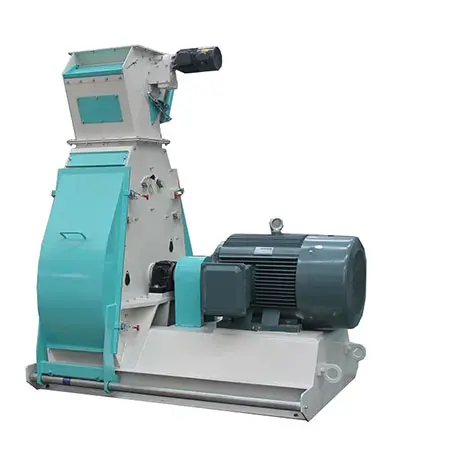The Power And Versatility Of Hammer Mills
#News · 2024 / 12 / 14
In the world of industrial machinery, the hammer mill stands out as a crucial and highly efficient piece of equipment. A hammer mill is a type of crusher that uses hammers to pulverize materials into smaller particles. It is widely used in various industries for processing a wide range of materials, making it an essential tool for many manufacturing processes.
The design of a hammer mill is relatively simple yet highly effective. It consists of a rotor with hammers attached to it, which spins at high speed inside a grinding chamber. The material to be processed is fed into the chamber through a hopper, and as the rotor spins, the hammers strike the material, breaking it down into smaller pieces. The size of the particles can be adjusted by changing the screen size at the bottom of the chamber.
One of the key advantages of a hammer mill is its versatility. It can handle a wide variety of materials, including but not limited to wood, agricultural waste, minerals, and even some types of plastics. This makes it an ideal choice for industries such as biomass processing, mining, and recycling. For example, in the biomass industry, a hammer mill can be used to process wood chips and sawdust into fine particles for use as fuel pellets or animal bedding. In the mining industry, it can be used to crush ores and minerals for further processing.
Another advantage of the hammer mill is its high production capacity. With its rapid hammer action and efficient design, it can process large amounts of material in a short period of time. This makes it suitable for both small-scale and large-scale operations. Additionally, hammer mills are relatively easy to operate and maintain. They have few moving parts, which reduces the risk of breakdowns and simplifies maintenance procedures.
Hammer mills also offer several benefits in terms of energy efficiency. Compared to other types of crushers, they consume less power per unit of material processed. This is because the hammers' high-speed impact breaks down the material quickly and efficiently, requiring less energy input. Moreover, the design of the hammer mill allows for a more uniform particle size distribution, which can improve the efficiency of downstream processing steps.

In addition to its industrial applications, hammer mills can also be used in agricultural settings. For instance, they can be used to grind feed for livestock, process grains for human consumption, or crush stalks and other agricultural waste for composting. This versatility makes the hammer mill a valuable asset for farmers and agricultural businesses.
When choosing a hammer mill, it is important to consider several factors. These include the type of material to be processed, the required particle size, the production capacity, and the power source. Different models of hammer mills are available, each with its own specific features and capabilities. It is also important to choose a reputable manufacturer who can provide quality equipment and reliable after-sales support.
In conclusion, the hammer mill is a powerful and versatile piece of machinery that plays a crucial role in many industries. Its ability to process a wide range of materials, high production capacity, and energy efficiency make it an essential tool for manufacturers and processors. Whether you are in the biomass, mining, recycling, or agricultural industry, a hammer mill can help you improve your processing efficiency and reduce costs. So, if you are looking for a reliable and efficient crusher, consider investing in a hammer mill. It is sure to be a valuable addition to your production line.
